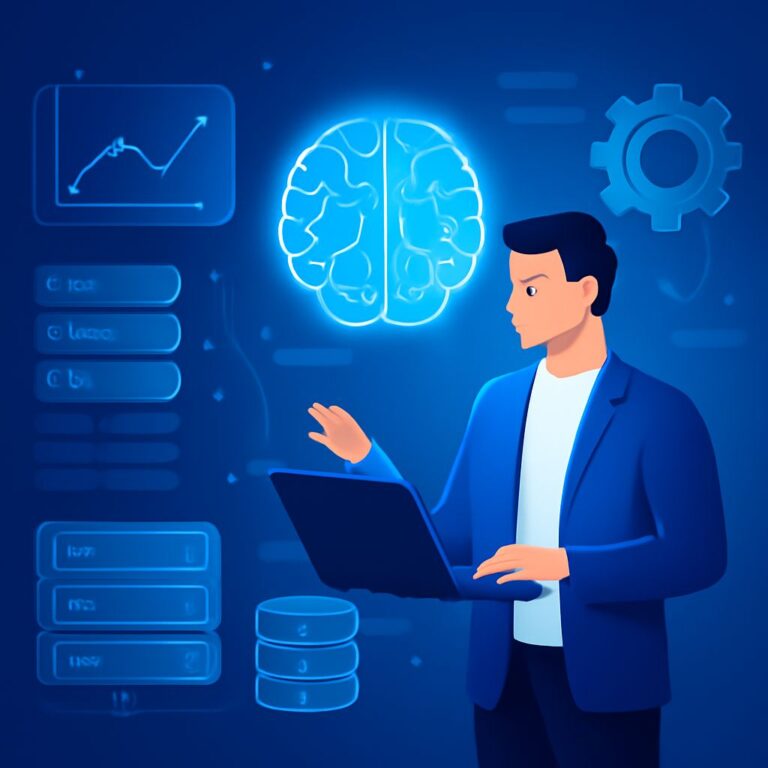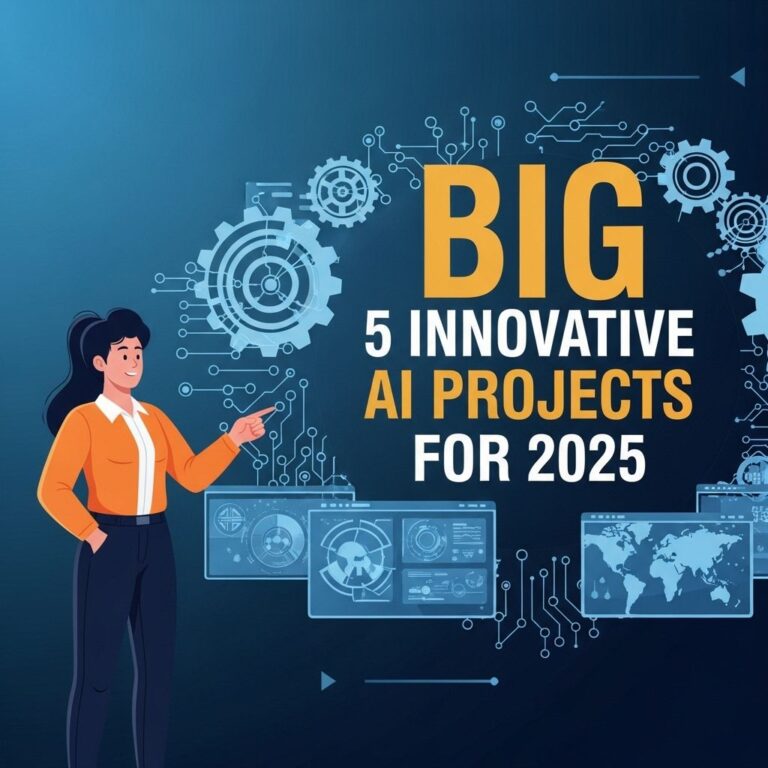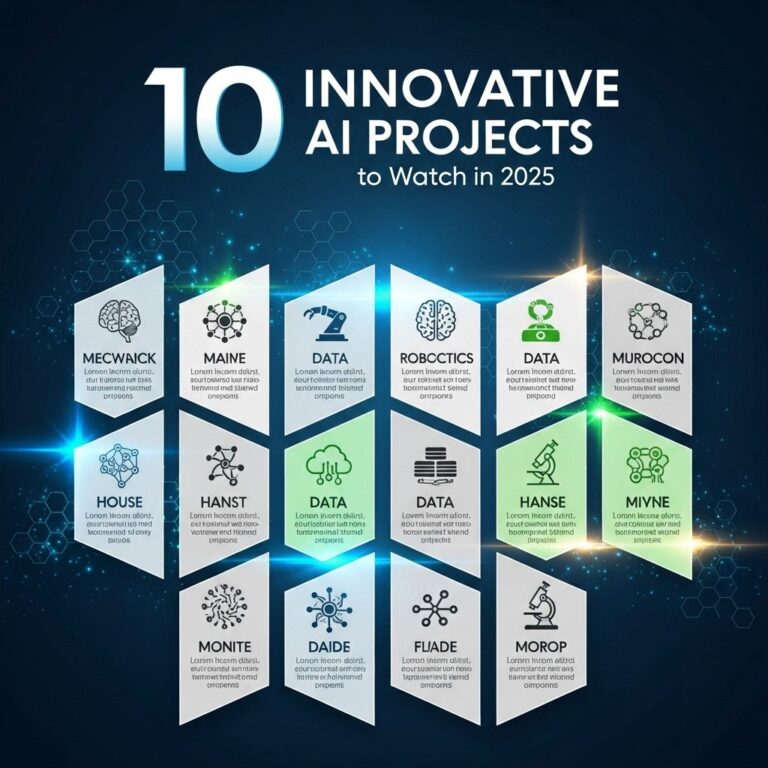Table of Contents
Transform Your Data with AI Solutions in 2025
As we progress further into the 21st century, the role of artificial intelligence (AI) in transforming data management and analysis is becoming increasingly significant. The year 2025 is poised to witness groundbreaking advancements in AI technologies that are set to revolutionize how organizations harness their data for strategic decision-making and operational efficiency. This article delves into the various facets of AI solutions that are emerging in 2025 and how they can effectuate a paradigm shift in data transformation.
Understanding AI and Its Role in Data Transformation
AI refers to the simulation of human intelligence processes by machines, particularly computer systems. These processes include learning (the acquisition of information and rules for using it), reasoning (using rules to reach approximate or definite conclusions), and self-correction. In the context of data transformation, AI technologies are enabling high-level data analysis, predictive modeling, and advanced visualization techniques.
Key Trends in AI Solutions for 2025
The landscape of AI solutions is continuously evolving, and several trends are expected to shape the data transformation narrative in 2025. Here are some of the most noteworthy trends:
- Automated Data Processing: With advancements in natural language processing (NLP) and machine learning, automated data processing will become more sophisticated, allowing for real-time data management.
- Augmented Analytics: AI-driven augmented analytics tools will enable users to analyze data more efficiently by automating data preparation and insight generation.
- Explainable AI: As AI becomes more integral to decision-making, there will be a push for transparency in AI algorithms, ensuring that stakeholders can understand and trust the decisions made by AI systems.
- AI in Data Privacy: With regulations tightening around data privacy, AI solutions will play a critical role in ensuring compliance and safeguarding sensitive information.
- Integration of IoT and AI: The convergence of Internet of Things (IoT) devices and AI will result in enhanced data collection methods, allowing for more granular insights and proactive decision-making.
Implementing AI Solutions for Data Transformation
The implementation of AI solutions in data transformation requires a strategic approach. Companies must assess their readiness to adopt AI technologies, including evaluating their data infrastructure and identifying potential barriers to implementation. Below is a step-by-step guide for organizations looking to implement AI solutions effectively:
Step 1: Define Business Objectives
Start by identifying the specific business objectives you want to achieve with AI. This could range from improving customer experiences to optimizing operations.
Step 2: Assess Data Readiness
Evaluate your existing data management practices. Ensure that your data is clean, well-organized, and accessible to AI tools.
Step 3: Choose the Right AI Tools
Select AI tools that align with your business needs. This may involve investing in AI platforms that specialize in machine learning, NLP, or data analytics.
Step 4: Train Your Team
Invest in training your employees on the new technologies. A skilled workforce is crucial for successful AI implementation.
Step 5: Monitor and Optimize
Once the AI solutions are in place, continuous monitoring and optimization are vital to ensure that the systems are performing as expected and delivering value.
Case Studies: Successful AI Implementations
Several organizations have already successfully implemented AI solutions that transformed their data management processes. Below are a few notable case studies:
| Company | Industry | AI Solution | Outcome |
|---|---|---|---|
| Netflix | Entertainment | Content recommendation algorithms | Increased viewer engagement and reduced churn rates |
| Amazon | E-commerce | Predictive inventory management | Improved stock levels and reduced operational costs |
| IBM | Technology | Watson AI for healthcare | Enhanced patient outcomes through data-driven insights |
Challenges in Adopting AI Solutions
While the benefits of AI solutions in data transformation are numerous, organizations also face several challenges when adopting these technologies:
- Data Quality: Poor data quality can lead to inaccurate AI predictions, making it imperative to invest in data cleansing and normalization.
- Skill Gap: There is a shortage of skilled professionals who can effectively implement and manage AI technologies, which can hinder the adoption process.
- Cost of Implementation: The initial investment needed for AI tools and training can be significant, posing a financial barrier for some organizations.
- Resistance to Change: Employees may be resistant to adopting new technologies, necessitating effective change management strategies.
The Future of Data Transformation with AI
Looking ahead, the future of data transformation with AI solutions appears promising. As technology continues to mature, we can anticipate:
- Greater Personalization: AI will enable organizations to provide highly personalized experiences to customers based on data-driven insights.
- Real-Time Decision Making: With faster data processing capabilities, organizations will be able to make real-time decisions that enhance agility and responsiveness.
- Increased Collaboration: AI tools will facilitate collaboration between departments, allowing for a more cohesive approach to data management.
- Enhanced Security: AI will bolster cybersecurity measures, helping organizations protect their data from evolving threats.
Conclusion
As we approach 2025, the integration of AI solutions in data transformation is set to redefine how businesses operate. By leveraging AI technologies, organizations can unlock valuable insights from their data, driving innovation and improving decision-making processes. While challenges remain in the adoption of AI, the potential benefits far outweigh the hurdles. Embracing these advancements will not only facilitate data transformation but also position organizations for success in an increasingly competitive landscape.
FAQ
What are AI solutions for data transformation?
AI solutions for data transformation involve using artificial intelligence technologies to automate, enhance, and optimize the process of converting raw data into meaningful insights and actionable information.
How can AI improve data accuracy?
AI can improve data accuracy through advanced algorithms that analyze and clean data, identify anomalies, and ensure that the information used for decision-making is reliable and precise.
What industries can benefit from AI data transformation?
Various industries such as healthcare, finance, retail, and manufacturing can benefit from AI data transformation by leveraging insights to drive innovation, reduce costs, and enhance customer experiences.
Is AI data transformation suitable for small businesses?
Yes, AI data transformation is suitable for small businesses as it can provide scalable solutions that help them analyze their data efficiently, enabling them to make informed decisions without the need for extensive resources.
What are the key benefits of using AI for data transformation?
Key benefits include increased efficiency, enhanced data quality, faster decision-making, and the ability to uncover hidden patterns and trends that can lead to strategic advantages.
How do I get started with AI solutions for data transformation?
To get started, assess your current data processes, identify specific challenges, explore AI tools that fit your needs, and consider partnering with experts in AI implementation.







